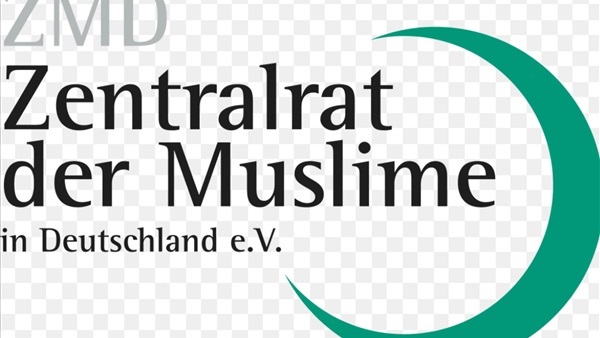Germany classifies Islamic Community as 'Brotherhood branch'

The Federal Ministry of the Interior for the Protection of the Constitution has decided to classify the Islamic Community of Germany as an organization close to the Muslim Brotherhood.
Membership of the community has
already been suspended since December 2019. It has been disqualified only
today.
On January 31, the Central Council
of Muslims in Germany decided to exclude the community from its online meeting
of representatives.
The exclusion decision was backed
by a two-thirds majority, a voting requirement for the decision to be approved,
the Central Council in Cologne, Germany, said today.
The Islamic Community of Germany is
closely linked to the Muslim Brotherhood in Egypt.
A large number of legislators and politicians
called for banning institutions linked to the Muslim Brotherhood, especially
during the Angela Merkel era.
The Muslim Brotherhood, they said,
is classified as a 'terrorist group' in most Arab and European countries.
The Islamic Community of Germany,
widely known by its initials IGD, had its name changed from the Islamic Group
in Germany in 2018.
It is one of the oldest Islamic
organizations in Germany. The community was established in 1958 and it is closely
linked to the extremist Muslim Brotherhood.
The Office for the Protection of
the Constitution assumes that community members plan to establish an Islamic
state in Germany in the medium term.
Founders
Said Ramadan was one of the earliest
Muslim Brotherhood leaders to arrive in Europe. He was a Muslim Brotherhood
pioneer.
Ramadan was a private secretary of
Muslim Brotherhood founding father, Hassan al-Banna. He led the Brotherhood's
volunteering team in Palestine and was one of the most important members of the
group.
The community's declared goal was
to serve Muslims in Germany. However, its hidden agenda was to form a branch of
the Muslim Brotherhood in Germany. Ramadan headed the community for ten years,
from 1958 to 1968.
Ramadan was succeeded on the saddle
of the community by Fadl Yazdani, a man with Pakistani origins. Yazdani headed
the community for a brief period. Nonetheless, he is credited for completing
the construction of the Islamic Center in Munich. The land on which the center
was constructed was purchased outside Munich in 1966.
Yazdani headed a delegation of the community on a visit to Saudi
Arabia, specifically Mecca where he received a gift from King Faisal, amounting
to 160,000 Deutsche Marks. He also received 60,000 Deutsche Marks
from Kuwait and Qatar.
This was not enough to build the
center, which was why Yazdani contacted the Libyan government which contributed
an additional 500,000 marks. This helped Yazdni and his fellows to complete the
construction of the center by 1973.
Yazdani was succeeded at the helm
of the community by Ghaleb Hemmat, a Syrian of Italian origin who held an Italian
citizenship. Hemmat chaired the community from 1973 to 2002.
During this period, he established
the al-Taqwa Islamic bank. The bank played an important role in financing terrorist
groups in the 1990s. This was why it was called the Muslim Brotherhood bank in
Italy.
Hemmat appointed Youssef Nada as
the bank's head. Nada was one of the masterminds of the Muslim Brotherhood.
Both Nada and Hemmat used the bank as a façade for a number of activities,
including financing the Palestinian Hamas faction with huge amounts of money.
The bank also financed the Islamic Salvation Front in Algeria.
Nada and Hemmat were under in the
list of terrorism financiers for a long time. The two men's money was placed
under guard, along with the money of some members of the board of directors of
the bank. These members included Yusuf al-Qaradawi.
Hemmat resigned from the presidency
of the community in 2001.
Ibrahim al-Zayyat, an Egyptian who
lived in German, took over the presidency of the community after this. He had
an Egyptian father and a German mother.
Al-Zayyat was sentenced to ten
years in absentia in April 2008. He lives in Germany and is married to the
niece of Necmettin Erbakan, the former prime minister of Turkey.
Al-Zayat is known in Germany as the
Brotherhood's Finance Minister. Although he left the presidency of the Islamic
Community of Germany, he is always mentioned in international reports about the
Muslim Brotherhood, against the background of his statements.
He referred several times to the
importance of attacking what he called 'infidels' and the 'enemies of God'.
The community claims on its
homepage that its current president is Khaled Sweid, who was born in the German
city of Aachen.
Sweid has been working in the
automobile industry since earning a degree in engineering.
Sabri Sharif, who was born in
Benghazi, Libya, is Sweid's deputy. Sharif studied at the University of
Winnipeg in Canada. He has been living in Germany for more than 20 years now,
and was primarily involved in the Al-Muhajireen Mosque in the German city of
Bonn. He works as an imam and preacher there.
According to statistics, the
community has 15,000 members. It has activities across almost all of Germany.








